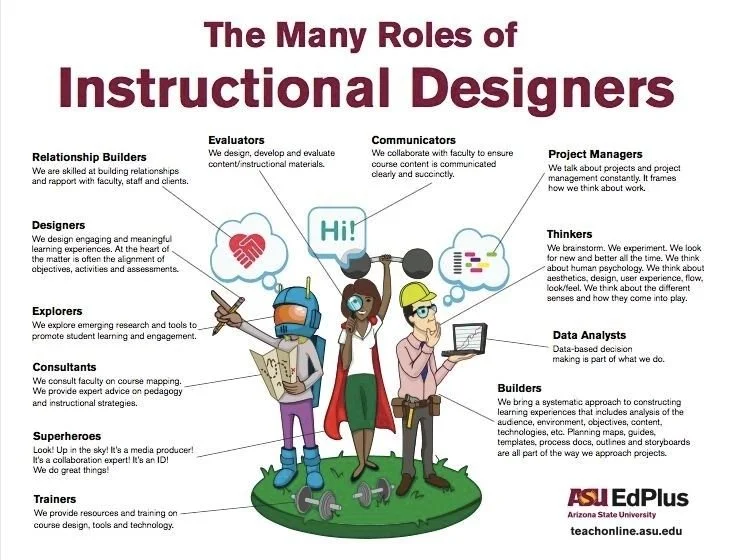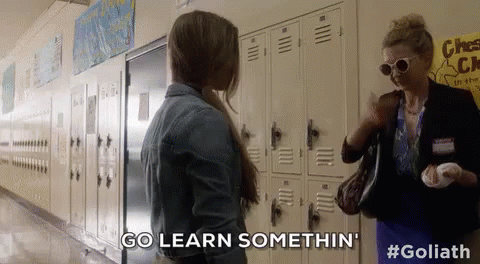Learning Nerd’s Diary #52
Welcome back Learning Nerds!
👀 Sneak peak
Here is what I have in store for you this week -
💭 Learning About Learning: Making the Most of Mentoring
🥜 Learning Nugget: Learning = Pizza
💥 Coolest Thing I Learnt This Week:
The Many Roles of Instructional Designers
LxD & Content
🔦 Spotlight: Learning Charters at Microsoft
Let's jump right in!
💭 Making the Most of Mentoring
Last month I wrapped up a 6 month mentoring journey as part of Offbeat’s Career Booster program. I was paired with a learning experience designer early on in their career and every 2 weeks, we spent an hour together.
The hour looked pretty different over those 6 months. Epiphanies, interesting conversations and a lot of learning in the process. We tried different formats - some worked while others didn’t. Here are some lessons I learnt about mentoring in the process:
1/ Align on a North Star ⭐️
Before starting on a mentoring journey it is important to align on what the mentees goals are. Goals could be as specific as “I want to improve on x, y, z” or as broad as “I want to learn about trends in domain x”. These goals help the mentee articulate what they are expecting from the journey and help the mentor be a better sherpa in the process.
Goals might change in the process - that is okay! Depending on the cadence and the duration of your engagement - you can factor in check-ins that help you go back to your goals - to evaluate, add, modify as necessary.
2/ Balance Specificity & Serendipity ⚖️
In the mentoring journey, conversations might be driven by specific questions like “How do I do x?” or “What do I do in situation y?” or might meander around what’s top of mind for you or them. Depending on the personality of the mentee and the mentor, conversations might be skewed towards one end but you need both in order to grow.
Specific questions help understand nuances, get more hands on and get answers that mentees can instantly apply in your context. Serendipitous conversations on the other hand, help touch upon topics that otherwise might not be on a ‘list’ but emerge through conversations. Make space for both!
3/ Build a Culture 🌻
As a mentor one of the best things you can do is set a healthy culture with your mentee. This means creating a safe space for your mentee to question, to say “I don’t know” or “I didn’t understand”. Questions are different when you’re starting our in your journey in any space and what might seem obvious to some is not the case for others.
Culture building also involves being vulnerable - for both parties and not making the relationship entirely transactional. Start you calls by talking about how you are, what’s new and a highlight from your life since you met last.
4/ Set Session Goals in Advance 🎯
It’s good to set goals for the next session while you wrap up the previous session. This not only helps the mentee come prepared but also helps the mentor think through some questions/ topics before coming for the session. Marinating is good for humans too!
Goals could be questions, topics, a specific project or anything else. Set a direction for where you want to be in the next session to make the most of it.
5/ Get Feedback, Iterate! 📝
A mentor-mentee relationship is like any other relationship - it needs work! Everything will not work all the time and it is useful to continue to do check-ins periodically to figure out how things are going. Two simple questions I like to ask to get a pulse check:
What worked?
What can be better?
Iterate basis the kind of feedback you’re getting - it will only help you get better and make the relationship beneficial for both parties!
So whether you’re a mentor or a mentee - keep these things in mind and your mentoring journey will be a lot more meaningful!
🥜 Learning = Pizza
Learning without reflection is like a pizza without toppings.
It’s not a pizza at all!
💥 Coolest Thing I Learnt this Week
The Many Roles of Instructional Designers
This visual does justice to the many roles that we play as learning experience designers -
It also reminds me of this article I wrote last year on what I do. Check it out here!
LxD & Content
As a learning experience designer, I often get asked “How can you write content if you’re not the subject matter expert?”. While there is a huge shift in L&D from content creation to curation - even the latter involves a lot of work! For designers, the role is to reduce the end load of the learner & that often involves a huge cognitive load on oneself.
🔦 Spotlight
Spent last Friday with the wonderful folks at Microsoft’s Studio +91. I did a workshop on how adults learn and shared Learning Charters with them.
90 mins, 58 people, 33 Learning Charters came out of the workshop! Here is what folks had to say about it -
Love & Learning
Until we meet next week!
Okay?
You can get this directly in your inbox!






